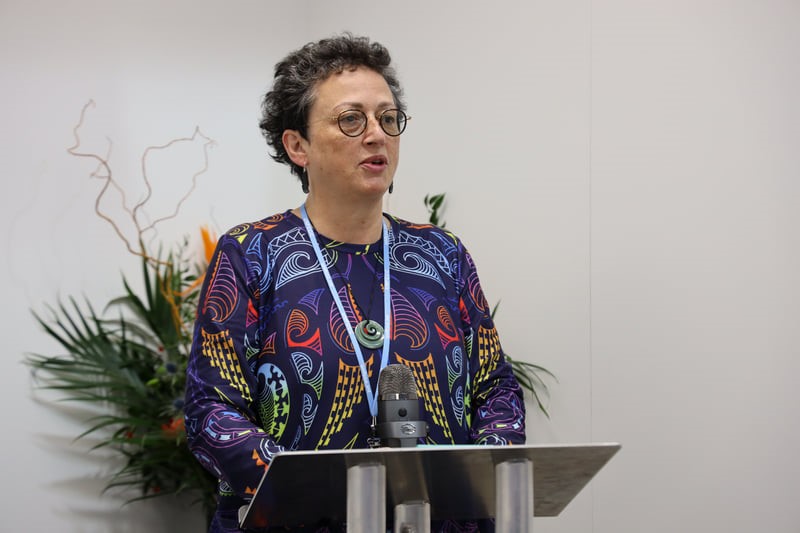On this page
MFAT’s role
Addressing climate change is a key strategic priority for MFAT. Our focus is on ensuring there is an effective global response to the climate challenge, to be able to build a safer, more prosperous, and more sustainable future for New Zealanders.
MFAT has wide ranging responsibilities in developing, negotiating, co-ordinating and implementing New Zealand’s international climate change engagement and commitments.
We have three priority areas for our work:
- To influence effective global action;
- To support our Pacific region to build resilience to climate change;
- And to support New Zealand’s transition to a low-emissions future by working offshore – to find the technologies, best practices, innovation and investment New Zealand needs to accelerate emissions reductions at home, and to help New Zealand providers of transition technologies and services to find opportunities in markets offshore
Aotearoa New Zealand’s Climate Change Ambassador is Kay Harrison.

Contributing to global cooperation
Aotearoa New Zealand has joined with many other countries to agree on how we tackle climate change globally. New Zealand is committed to a fair and equitable global response to climate change.
Aotearoa New Zealand is represented at the United Nations Framework Convention on Climate Change (UNFCCC or UN Climate Change) and other multilateral forums to advance collective action on climate change.
Our mandate for negotiations is set by Cabinet, and was last
We contribute to and influence global cooperation by:
- leadership by example, driving climate coalitions and campaigns, and influencing in high-level international discussions
- using our bilateral relationships to influence other countries’ policy decisions, in particular those that impact on emissions and global climate cooperation
- negotiating, influencing and upholding the evolving international rules and the multilateral system, including the United Nations Framework Convention on Climate Change (UNFCCC)(external link), and the Paris Agreement(external link).
- Ensuring trade policy and agreements promote sustainability and climate change, and promote action on environmentally harmful subsidies
Partnering with Pacific nations
New Zealand stands with the Pacific on climate change. This means:
- we identify and advance shared Pacific and New Zealand international climate change priorities
- we provide policy leadership on global and regional solutions to critical Pacific climate-related challenges
- we support their effective implementation of the Paris Agreement
- we support building resilience and adaptation to climate change impacts across the Pacific.
Find out more about how we fund activities in the Pacific, and how we provide climate change support in other parts of the world: Climate change support.
Using trade to support climate action
Read about how Aotearoa New Zealand’s trade and climate policy can support broader environment and sustainability objectives.

